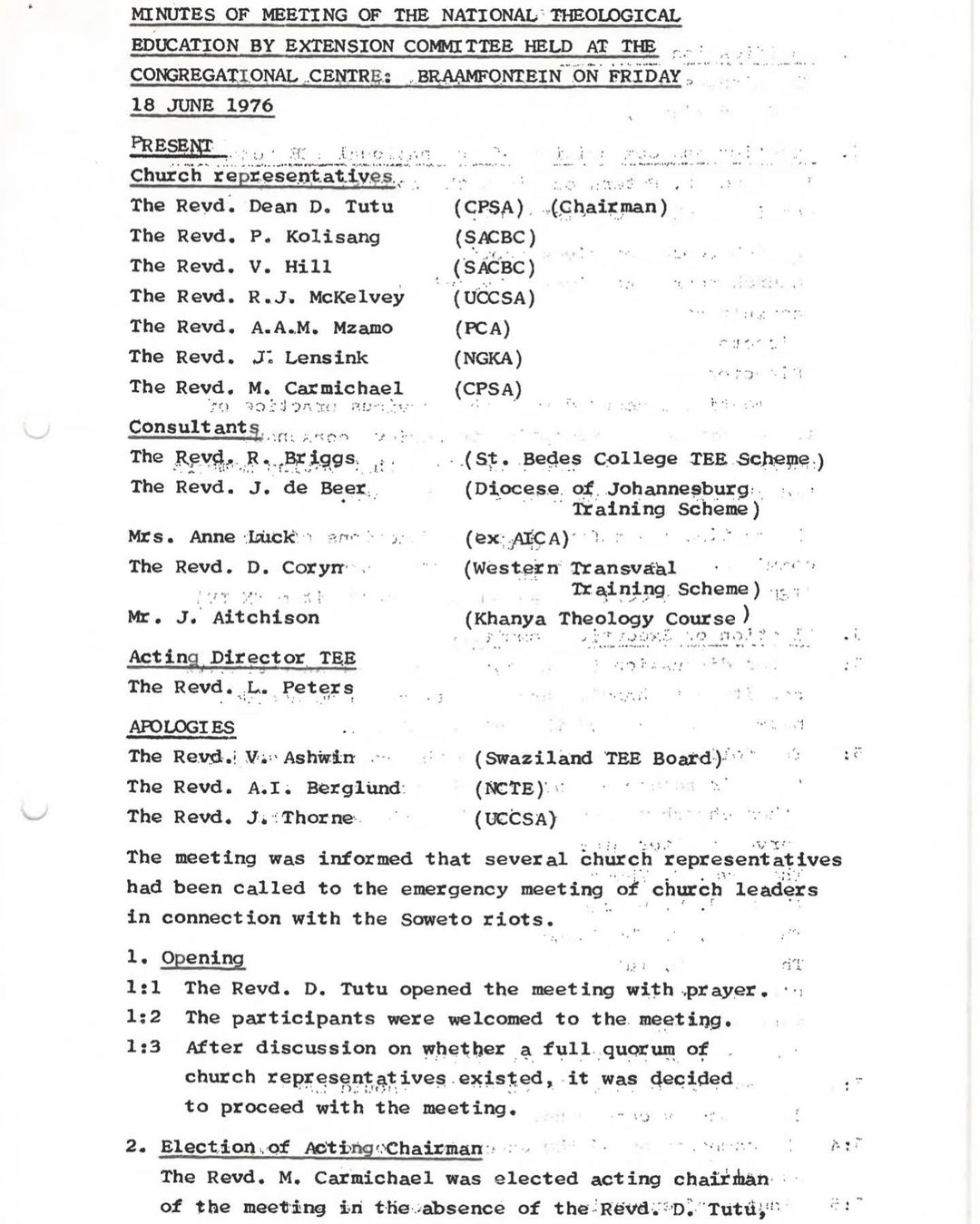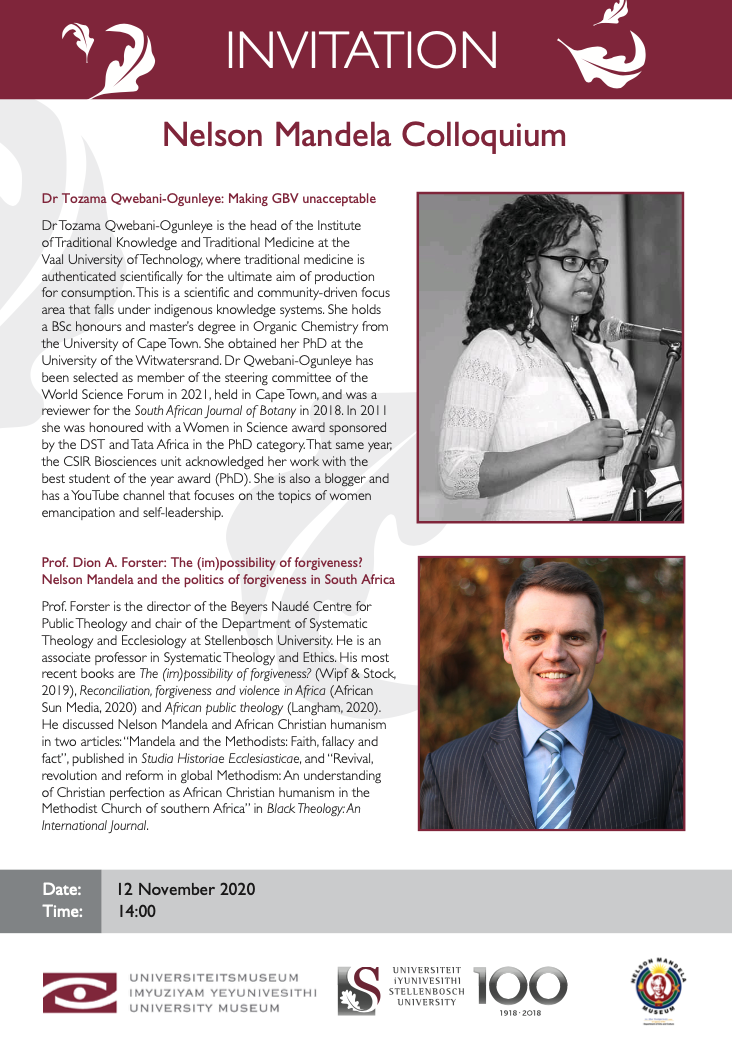The Soweto student Uprising, Desmond Tutu, and TEE College - some painful and hopeful history
 Saturday, June 18, 2022 at 4:11PM
Saturday, June 18, 2022 at 4:11PM  Here is a bit of painful, and hopeful, history.
Here is a bit of painful, and hopeful, history.
 Saturday, June 18, 2022 at 4:11PM
Saturday, June 18, 2022 at 4:11PM  Here is a bit of painful, and hopeful, history.
Here is a bit of painful, and hopeful, history.
 Friday, November 6, 2020 at 8:46AM
Friday, November 6, 2020 at 8:46AM  If anyone is interested, I shall be speaking at the Nelson Mandela Colloquium on 12 November at 14.00 (GMT +2h, South African time). It is open to anyone who wishes to attend. No need to register, just click on the MS Teams link in the event description which you will find here. I am speaking alongside Dr Tomaza-Qwebani-Ogunleye. I am very grateful!
If anyone is interested, I shall be speaking at the Nelson Mandela Colloquium on 12 November at 14.00 (GMT +2h, South African time). It is open to anyone who wishes to attend. No need to register, just click on the MS Teams link in the event description which you will find here. I am speaking alongside Dr Tomaza-Qwebani-Ogunleye. I am very grateful!
 Tuesday, October 19, 2010 at 7:32PM
Tuesday, October 19, 2010 at 7:32PM On the opening evening of the Third Lausanne Congress on World Evangelization a superb video overview of the History of Christianity and the shifts of the Christian Church was shown. It is about 30 minutes in length (if I recall). This great video from Cape Town was posted on the Global Conversation in two parts.
Here's part 1 (please see the brief description below):
Turning Points, Part 1: After a glimpse of the opening of the Congress, this video traces in two segments the growth of the church from Pentecost to the present in the face of many obstacles. Key movements, nations and figures are presented in this sweeping review of the expansion of Christianity up to the taking of the gospel to China.
Cape Town 2010 Opening Session - Turning Points, Part 1 from Lausanne Movement on Vimeo.
Here is part 2 (see the description below)
Turning Points, Part 2: This video picks up the history with Boniface taking the gospel to Germany and extends to the present time and the Cape Town Conference
Cape Town 2010 Opening Session - Turning Points, Part 2 from Lausanne Movement on Vimeo.
I'd love to hear your feedback on this great video! Please would you also consider leaving some comments on the Lausanne Global Conversation site?